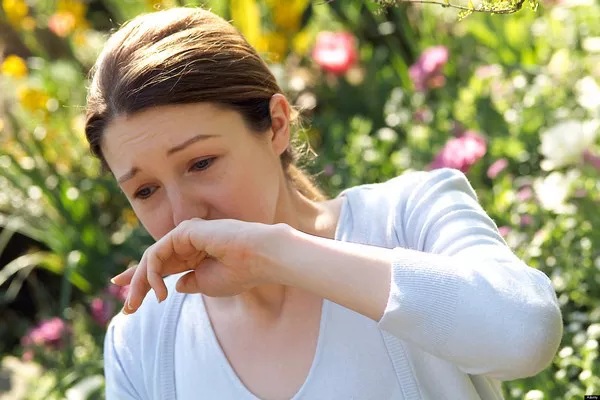Allergies can bring discomfort and unwanted symptoms, and one of the most bothersome is a persistent cough. Whether triggered by pollen, dust, pet dander, or other allergens, an allergy-induced cough can disrupt daily life. While medications are a common solution, some people seek natural remedies like herbal teas to alleviate their symptoms. In this article, we explore teas that are believed to be effective in soothing allergy-induced coughs and providing relief.
Understanding Allergy-Induced Cough
An allergy-induced cough is typically the body’s response to irritants or allergens that trigger the release of histamines. Histamines cause inflammation in the airways, leading to coughing as the body attempts to remove the irritants. This type of cough is often accompanied by other allergy symptoms such as sneezing, runny nose, and itchy eyes.
While it’s essential to identify and address the underlying allergen causing the cough, incorporating certain herbal teas into your daily routine may help alleviate symptoms and provide relief from the irritation.
Teas for Allergy-Induced Cough
1. Peppermint Tea:
Benefits: Peppermint tea is known for its soothing properties and ability to relieve throat irritation. It contains menthol, which can help relax the muscles in the throat and promote easier breathing.
How to Prepare: Steep fresh or dried peppermint leaves in hot water for 5-10 minutes. Sweeten with honey if desired.
2. Ginger Tea:
Benefits: Ginger has anti-inflammatory properties and can help reduce coughing and throat irritation. It’s also known for its immune-boosting qualities.
How to Prepare: Slice fresh ginger or use ginger tea bags and steep in hot water for 10-15 minutes. Add lemon and honey for added flavor.
3. Chamomile Tea:
Benefits: Chamomile tea has anti-inflammatory and antioxidant properties that can help calm irritated airways and reduce coughing. It’s also known for its calming effects, which can aid in better sleep.
How to Prepare: Steep chamomile tea bags or dried chamomile flowers in hot water for 5-10 minutes. Enjoy with a touch of honey.
4. Licorice Root Tea:
Benefits: Licorice root tea is known for its soothing properties, especially for the throat. It can help reduce irritation and coughing.
How to Prepare: Steep licorice root tea bags in hot water for 5-10 minutes. Be cautious with licorice if you have high blood pressure.
5. Turmeric Tea:
Benefits: Turmeric contains curcumin, known for its anti-inflammatory and antioxidant properties. Turmeric tea can help reduce inflammation in the airways and ease coughing.
How to Prepare: Mix turmeric powder with hot water and add a pinch of black pepper to enhance absorption. Sweeten with honey and add a splash of milk or milk alternative.
6. Honey and Lemon Tea:
Benefits: Honey can soothe a sore throat and suppress coughing, while lemon provides vitamin C and added flavor.
How to Prepare: Mix honey and fresh lemon juice in hot water. Stir well and sip slowly.
7. Nettle Tea:
Benefits: Nettle tea is believed to have antihistamine properties, making it potentially effective in reducing allergy symptoms, including coughing.
How to Prepare: Steep dried nettle leaves in hot water for 5-10 minutes. Be cautious, as nettles can cause an allergic reaction in some individuals.
8. Eucalyptus Tea:
Benefits: Eucalyptus has natural decongestant properties and can help clear the airways, making it easier to breathe and reducing coughing.
How to Prepare: Use eucalyptus tea bags or add a few drops of eucalyptus essential oil to hot water. Inhale the steam for relief.
Tips for Making and Using Allergy-Relief Teas
When preparing herbal teas for allergy-induced cough relief, keep the following tips in mind:
Use High-Quality Ingredients: Opt for fresh or high-quality dried herbs and teas to ensure maximum potency and effectiveness.
Stay Hydrated: Drink plenty of fluids throughout the day to stay hydrated and help thin mucus, making it easier to expel irritants.
Limit Caffeine and Alcohol: Caffeine and alcohol can dehydrate the body and worsen coughing. Consider limiting or avoiding these beverages during allergy episodes.
Practice Steam Inhalation: Inhaling steam from a hot cup of tea can help relieve congestion and soothe irritated airways.
Choose Local Honey: If using honey as a sweetener, choose locally sourced honey, as it may contain trace amounts of local allergens and potentially provide immunity against them.
Consult a Healthcare Professional: While herbal teas can offer relief, severe or persistent coughing may require medical attention. Consult a healthcare professional if your symptoms worsen or do not improve.
In Conclusion
Herbal teas can be a valuable addition to your allergy management toolkit, providing natural relief from the discomfort of an allergy-induced cough. However, it’s essential to remember that herbal remedies should complement, not replace, any prescribed medications or treatments recommended by your healthcare provider.
If you have a history of allergies or are unsure about trying herbal remedies, consult with a healthcare professional or allergist for personalized guidance and recommendations. They can help you identify your specific allergens and develop an effective allergy management plan tailored to your needs.

